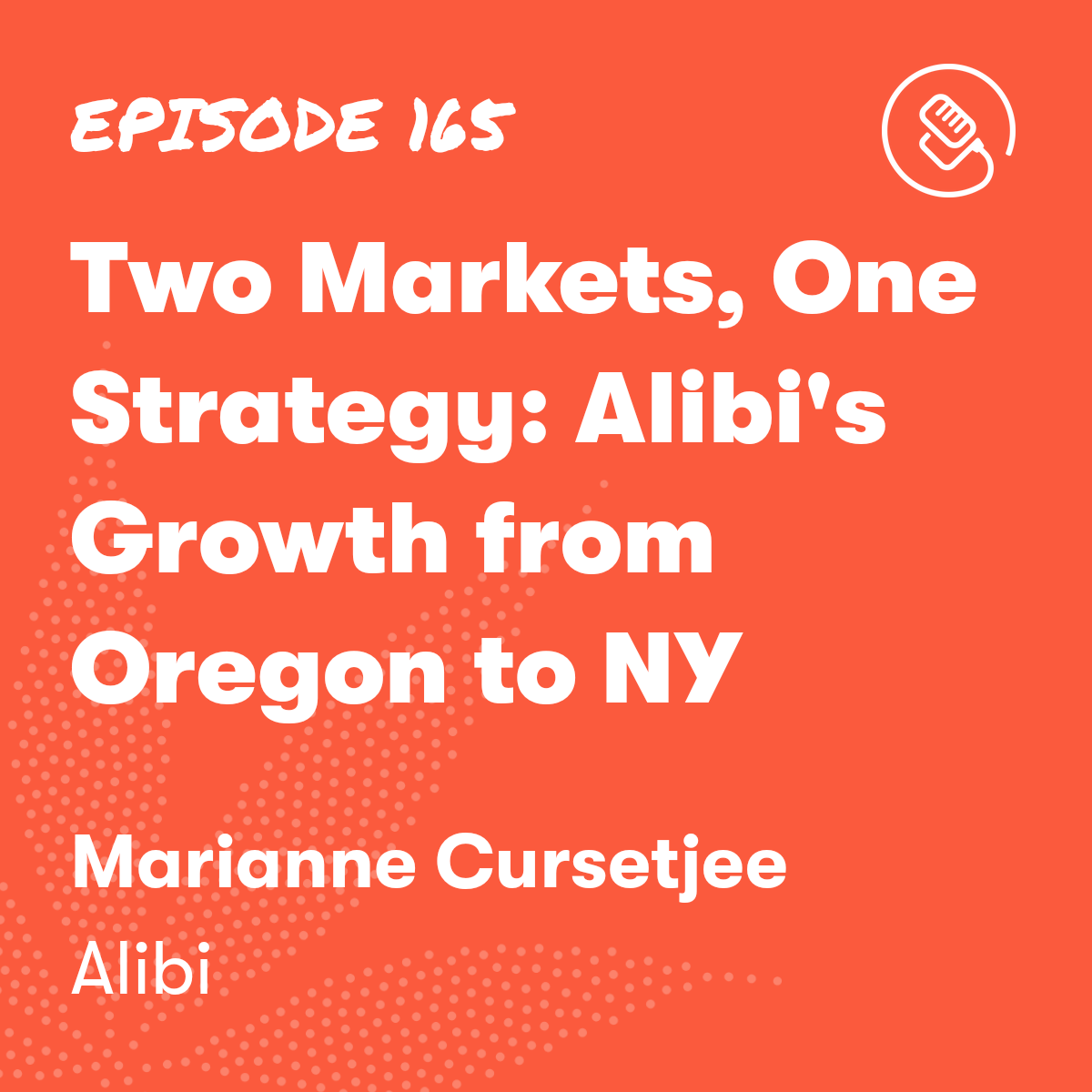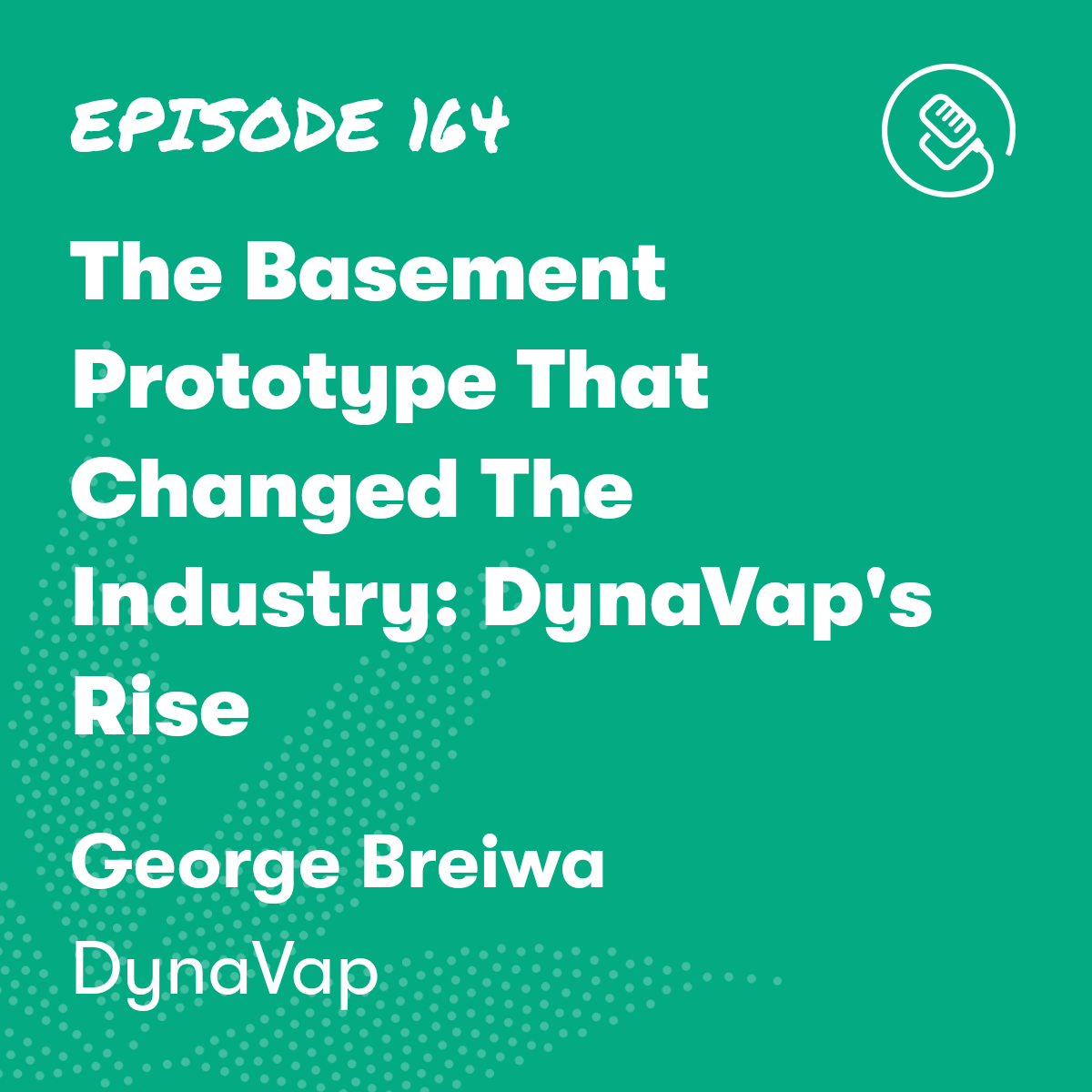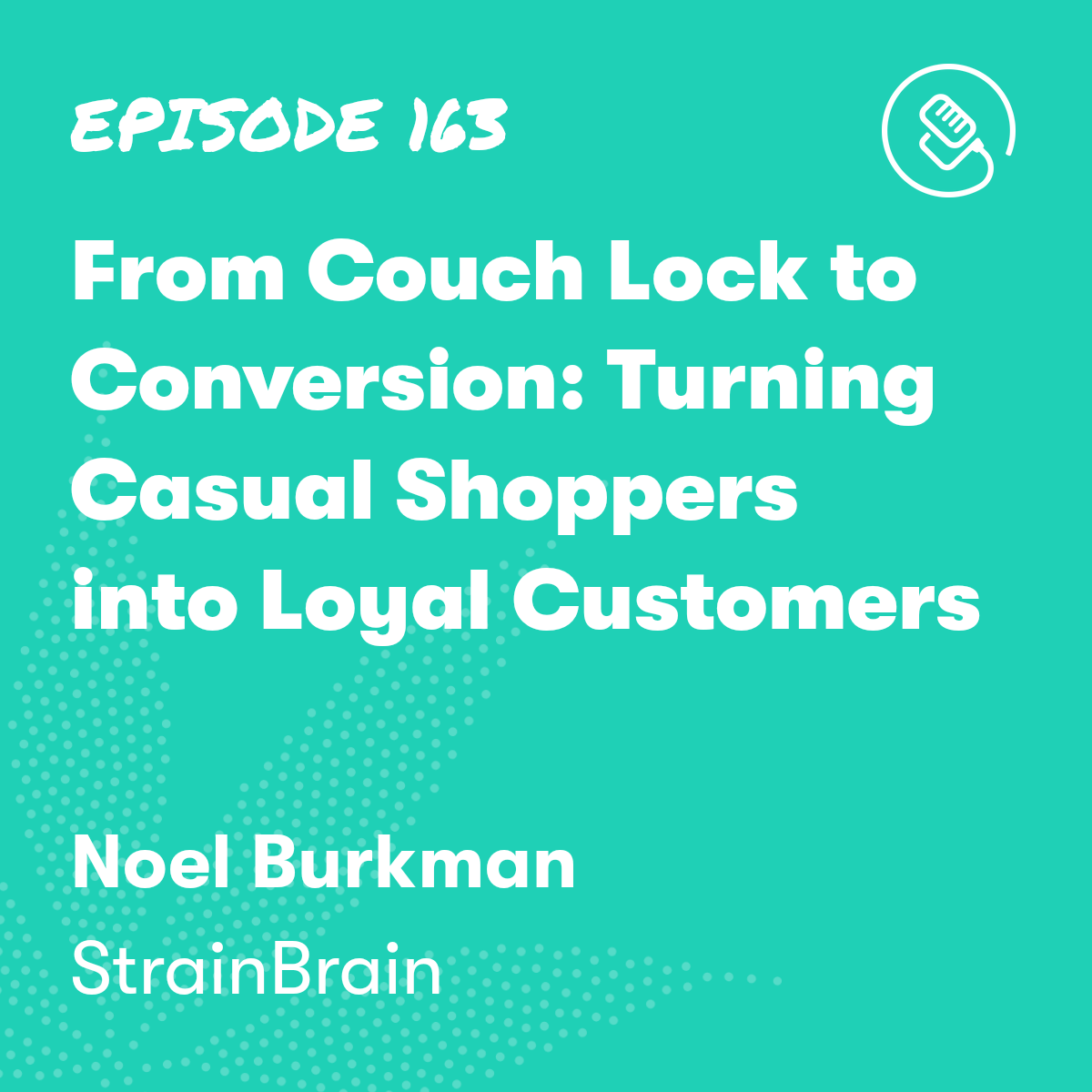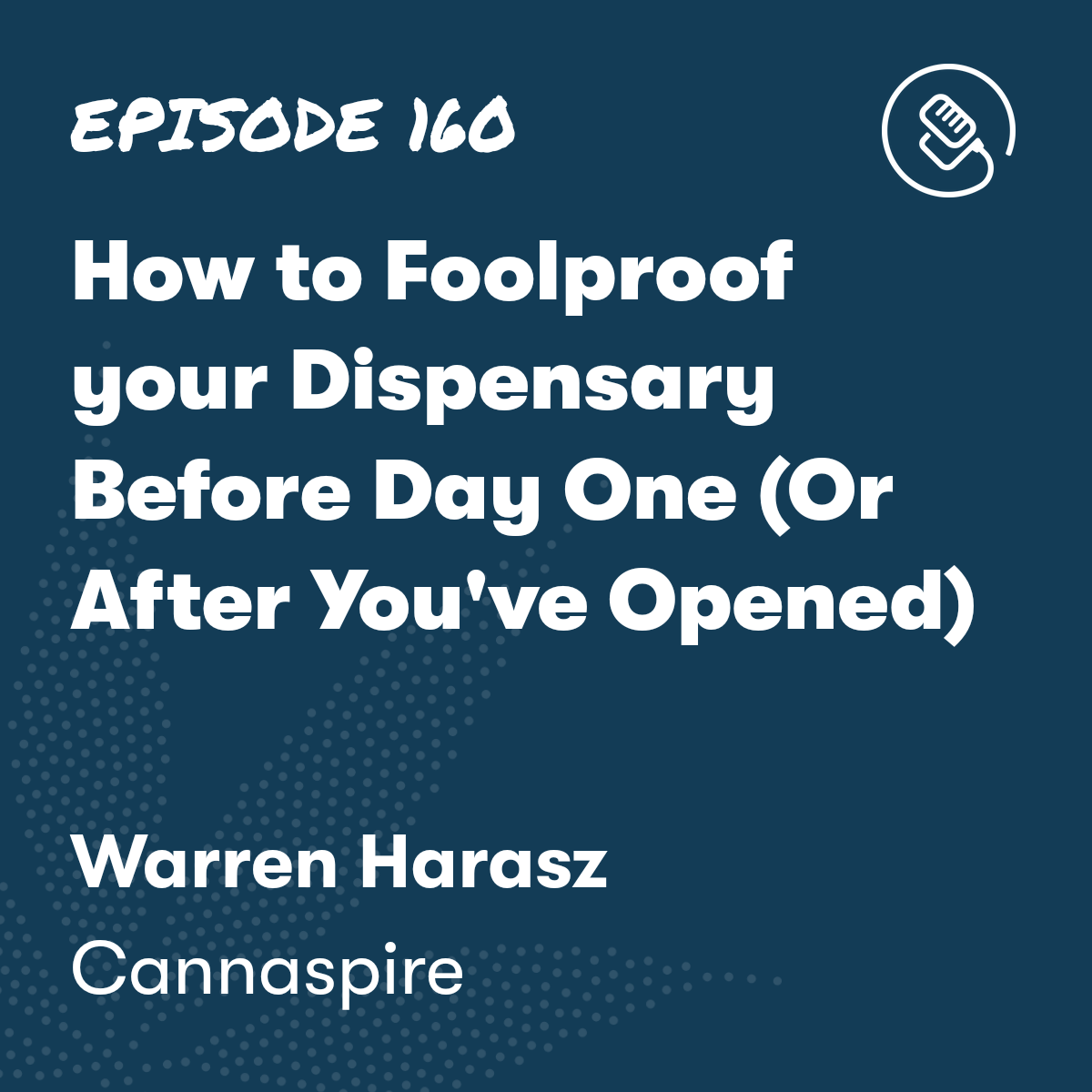

Selecting your Business Partner: Advice from a Cannabis CEO
Episode Description

Episode Transcript
Tommy: Starting a successful business is so tough. Odds are truly against you. Only 4% of businesses hit the $1 million mark and only 0.4% of businesses kiss the $10 million a year. Mark. But having read business partners definitely helps you beat the odds. But how do you know if the people you considering to go into business with are the right fit for you? Here are some things to consider when choosing your business partners.
Intro: Welcome to the KayaCast, the podcast for cannabis businesses looking to launch, grow, and scale their operations. Each week, we bring you interviews with industry experts and successful retailers, plus practical tips and strategies to help you succeed in the fast growing cannabis industry.
Tommy: Number one, are you in the same financial position? This is a times is a war of attrition. And oftentimes people quit before success comes. It may take some time before the business makes enough cash to pay its owners. How long can you and your business partners sustain financial hardship? We started our business in 2012. And for the entire first year, we drew nothing out of the business. We raised a small round of financing. And we had very little revenues at that time. So we invested every single dollar back into the business and it wasn't until the second year that we were able to pay ourselves a thousand dollars a month. Gosh, those are, those are some lean years. Let's just say that we eat a lot of 99 cent pizza at that time. It wasn't until the third or fourth year that we were able to pay ourselves a normal salary and by normal, I mean $20 an hour, which is a far cry from what I was making as a CPA. I remember my dad lecturing me about quitting my job. I was on track to be a partner, all of these things to make $20 an hour. But that's a story for another time. We wouldn't have been able to survive if me or one of my business partners couldn't sustain this financial hardship. Luckily we were on the same page and that's the benefit of having strong partners is you're married financially, you're all on the same page and you have each other's back. So no matter what work, we're going, we're on the same boat. We're going to the moon. And we're in this together. Are you and your potential business partners in the same financial position? Can you sustain the same level of financial hardship? Are you able to live poor if needed for a period of time to grow the business?
Number two, do you share the same financial expectations? Are you building a lifestyle business? Or a growth business. A lifestyle business. Is it business? You grow to a point where it has sufficient cash flows to fund the owner's lifestyle. The business really serves you. A growth business is it's exactly what it sounds. It's a business where you're reinvesting as much cash as possible back into the business for future growth. It requires the owners to take as little cash out of the business as possible. In this instance, you're really serving the business. It's so important to be on the same page with the type of business you guys are growing, because. It truly impacts personal finances.
The first business that I started with my business partner was a seafood distribution business. We bought dungeness crabs from Prince Rupert. And shifted all the way down to LA. We learned so much about this business.
We had a lot of success. And we had a lot of failure. We have shipments where we didn't make any money. And we had shipments where we made 20, $30,000. It was amazing when it worked. It was very frustrating when it didn't. I remember sitting down with my business partner. And we're talking about, "Hey, is this the right business for us?" Is this the right business for what we want. In the seafood distribution business, you have really no control on supply. You always have to buy from your suppliers. You have no control on the market price. At all. And you were dealing with perishable goods. You were dealing with live dungeness crabs which was very difficult. For us, it was more of a lifestyle business. You can generate a lot of cashflow in this business to fund an amazing life. But it was really hard to grow this business to a hundred million. So we decided that this wasn't for us, that we really wanted to be in a growth business. So we sold our shares to our other business partners. And we went into software. Are you and your business owners on the same page with the type of business that you want to grow? Are you growing a business to fund a lifestyle, or do you want to grow an empire? And are you on the same page with the financial sacrifices that it takes to get there?
Number three, do you share the same drive to win? Nothing's worse than one partner wanting it more than the other partner. Or one partner working harder than the other partner. Are you on the same page with how many hours you're committing to the business?
I started an accounting firm with two other business partners in 2009. And I was all in. I quit my job and I was ready to start from nothing. But my two other business partners weren't as ready. They wanted to keep their jobs. We foolishly thought this could work. And, uh, you know, the idea was for them to help with business development and grow the clientele base to a point where it's big enough for them to quit their jobs and take over their clients. I thought, Hey. Why not let's go. We all can do business development and scroll this. It didn't take very long before I thought to myself. Why do I need you guys? Why am I the only one living poor? Why am I the only one all in. And why can't I just do this on my own. There wasn't really any support system that we've created. We, you know, it's really important that if you're starting a business with other partners, Uh, things are equal and there's a support system there. And I saw myself just working in this business. By myself. And it didn't make sense to me that all major decisions we had to make collectively, it just didn't work out and that it was a huge lesson learned for me in my future business ventures that all of my partners, we all need to be in the same boat. And we all need to share the same commitment level to the business. Creating a successful business is tough. It is difficult, only 0.4% of businesses ever touch $10 million of revenue a year. It's very difficult to get to that point. And it's damn near impossible if you don't have committed partners, I just don't think you'll ever work out. If you are starting a business with your partners, make sure that you guys share the same level of commitment. That you guys are all in and you're in the same boat and you're marching the same direction.
Number four, going into business is a guaranteed way of manufacturing, disagreement, and conflict. And that's why people often say you should never go in business with your friends or your family. Because you're guaranteed to disagree with each other. In my opinion, if you're not disagreeing during this process, you're not doing it right. There is no way for you to March towards a billion dollars without disagreeing on something. And I think it's actually a good thing. It helps flush through problems more thoroughly and ensures that you make the best decision at the end.
One framework that we use that has worked for us is imagine that everything that you own is in your business. And you're never ever going to sell your business. So every single decision that you make needs to be the best for the long term success of the business. And that's a really good foundation to have, and it's a really good position to take. Because even though you disagree, you know, that your business partners are coming to this problem. With the same position as you, what is the best for the long-term success of the business?
A great quote. I heard, uh, I forgot who said it is. The most successful businesses are the ones that make the most mistakes. And the trick is, is you can't make a mistake so big. That it takes you out of the game. And this is, this is an awesome quote. And I thankfully, decisions that are so big that you have to get right don't come very often and a good framework that we use is if there's ever a decision that is so big, that it may take us out of the game. we had to collectively decide. So it's, it's all or nothing. All of us need to be on the same page in order to move forward. And for decisions that are routine that are just operational, we all give our opinions and our analysis. And collectively just decide, we decide and we commit. There's a great framework that we have adopted from Amazon. That once a decision is made. Everybody commits to ensure that it's successful, even the parties that are opposed to that decision collectively as a group, if we decide we move and we are a hundred percent committed.
Okay. Some questions to ask yourself if you're going into business with the right people. Are you in the same financial position? Business is oftentimes a war of attrition and it may take some time before the business generates enough cash flow to pay its owners. Do you share the same financial goals? Are you building a lifestyle business? Or a growth business. Are you willing to make the same financial sacrifices to be successful? And finally, do you share the same commitment to win? I'll never work out. If one partner is working harder to grow the business than the other partner.
If you enjoyed this video, please hit the light button. And if you want more videos like this, let us know, enter a comment below until next time guys take care.
Outro: Thanks for listening to the KayaCast podcast. We hope you enjoyed the show. Don't forget to subscribe to our podcast in your favorite podcast app, or visit our website to learn more about our guests and to access the full archive of episodes from the show. Join us next time as we continue to explore the world of cannabis and help you grow, launch, and scale your business.











